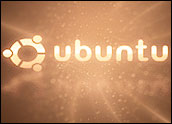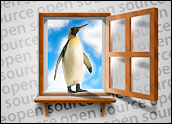
Canonical, the Europe-based commercial Ubuntu vendor, has released an optimized version of Ubuntu for VMware virtual appliances. It’s called “Ubuntu JeOS edition” — the JeOS refers to the VMware concept of Just Enough Operating System, a no-overhead, pared-down version of an OS ideal for virtual appliances.
Ready to Go
“Virtual appliance” refers to ready to go, preconfigured, software applications packaged with an OS environment in a virtual machine.
The new Ubuntu JeOS for VMware is designed to reduce the overhead normally associated with operating systems, Gerry Carr, Canonical marketing manager, told LinuxInsider.
This stripped-down version of Ubuntu for VMware is to be publicly available Oct. 18, timed to coincide with the next release of Ubuntu, Carr said.
At VMworld Show
Shouting above the din of the show crowd, Carr spoke to LinuxInsider Wednesday from the Canonical booth at the VMworld event, where crowds attended to hear more about virtualization technologies.
“I am surprised at the numbers of people here,” Carr said, as the numbers exceeded his expectations. “I’m also impressed by the universality of the crowd,” he said. “Competitors and partners have come here and not just to hear about VMware; they’re interested in virtual appliance technology.”
Visitors to the Canonical booth also indicate that “virtual appliances are moving into the mainstream,” he said. Booth visitors were not merely Ubuntu enthusiasts. “We are seeing people from generally conservative business sectors, government agencies, energy suppliers,” he said. Visitors were talking about “experimenting with prototypes and then rolling Ubuntu into production,” he added.
Business Objects On Board
As for the Ubuntu JeOS Edition, business intelligence firm Business Objects this week unveiled a virtual appliance based on Ubuntu JeOS. The appliance carries a pre-installed, preconfigured BI system running on VMware’s virtualization platform.
Virtual appliance marketeers are suggesting server virtualization technologies will do nothing short of change the entire software industry because people will discover they can leave behind complexities they saw in the past in setting up software applications and managing them.
If 2007 is the year of interest and talk, however, it is not necessarily the year of implementation.
“We’ll have to see how far and fast virtual appliances change ‘computing as we know it,'” Gordon Haff, Illuminata analyst, told LinuxInsider.
“Appliances become a hot topic from time to time and, outside of a few niches, they have never made a big impact,” Haff said.
Along with potential advantages, “people run into various roadblocks such as the ability to easily customize and tailor,” he said. “So far, we’ve seen virtual appliances mostly used for demos, and mostly on Linux, for licensing reasons.”




















































